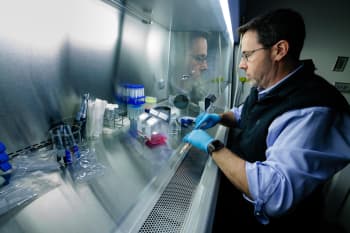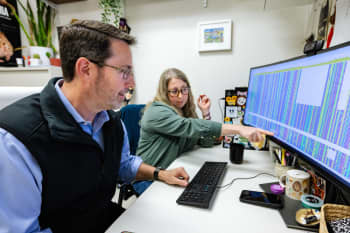SEC Professor of the Year Connecting Scientific Curiosity and Genetic Impact
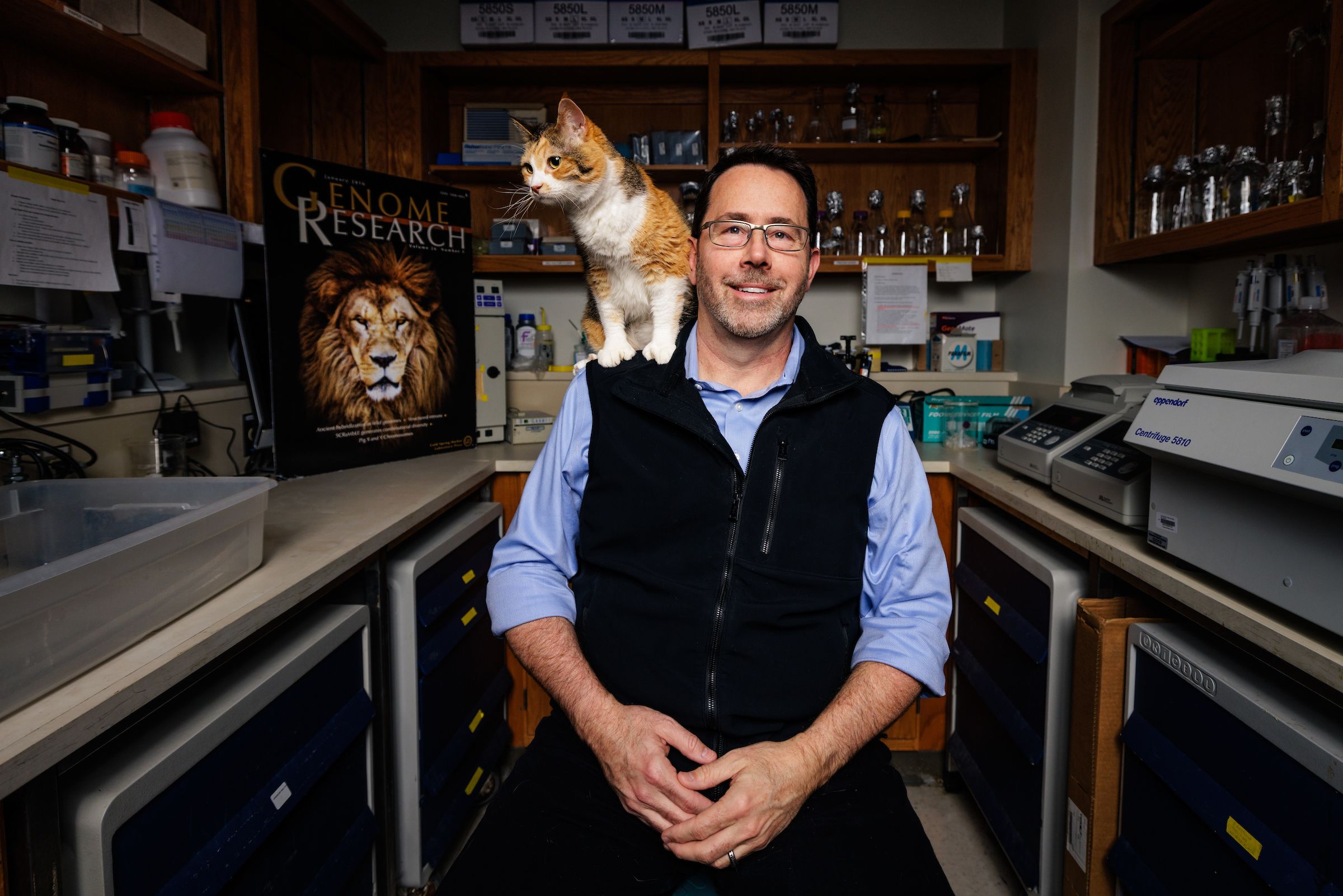
There are clear connections running through the life of Dr. William J. Murphy, researcher and faculty member at Texas A&M University’s College of Veterinary Medicine and Biomedical Sciences.
It starts at the deep-seated curiosity that has driven Murphy from childhood bug collections to cutting-edge comparative genomics research. It continues throughout his education and career, reflected in an excitement that Murphy brings with him to the classroom and lab.
The connections have come together in a way that has Murphy’s work making an impact in understanding evolutionary processes in mammals. They have also led Murphy to being named the 2025 Southeastern Conference Professor of the Year.
By Jason Nitsch, Texas A&M University College of Veterinary Medicine and Biomedical Sciences
By Jason Nitsch, Texas A&M University College of Veterinary Medicine and Biomedical Sciences
Connecting the Dots
Murphy spent his early days exploring the forest and river that surrounded his Rochelle, Illinois, neighborhood. Science was never a chore or an assignment—it was an adventure.
“I was just outside a lot as a kid,” Murphy said. “I always gravitated toward science. I’d collect and catch whatever creature I could—I just found myself drawn to the natural world.”
Even his childhood report cards hinted at what was to come, as teachers noted his interest in science. Yet, despite his love for nature and experimentation, Murphy wasn’t always sure where that passion would take him.
When Murphy started college, he leaned into biology, majoring in zoology. But it wasn’t until he got hands-on experience in a research setting that he truly found his calling.
“I started working in a virology lab as a freshman, and I ended up working in a laboratory for the next four years,” he said. “That’s when I really figured out that I liked the research side of science.”
The 2025 SEC Professor of the Year - Dr. William Murphy
Invisible String of Fate
However, at one point Murphy was grappling with uncertainty and ready to walk away from science altogether. That turning point, he says, was reversed by a chance encounter—and a connection with his Ph.D. adviser Dr. Glen Collier that would shape the rest of his career.
That mentorship began indirectly through Collier’s wife, Nan. As a freshman at Illinois State University, Murphy worked under Nan in Dr. Lynne Lucher’s virology lab, doing what he calls “grunt work.” By the following year, funding had ended, and Murphy was out of a lab job—relegated to work in the campus mailroom and questioning his future.
One afternoon, Nan happened to see him walking back from the library and asked how he was doing. After hearing his situation, she told him her husband was starting a new lab—and had an open position.
“She saved my life that day,” Murphy said. “Who knows what would have happened to me?”
That serendipitous moment led to an undergraduate spot in Glen’s lab, and later, an invitation to follow him to the University of Tulsa when Glen became department head.
“He gave me a fair amount of flexibility, but he was always present in the lab,” Murphy said. “I’ve tried to model myself after that—having an open-door policy, meeting with students regularly, but also encouraging them to come to me when they find something exciting.
“In many ways, he was a father-type figure, basically guiding me through the scientific process,” Murphy said. “I owe a tremendous debt of gratitude to him.”
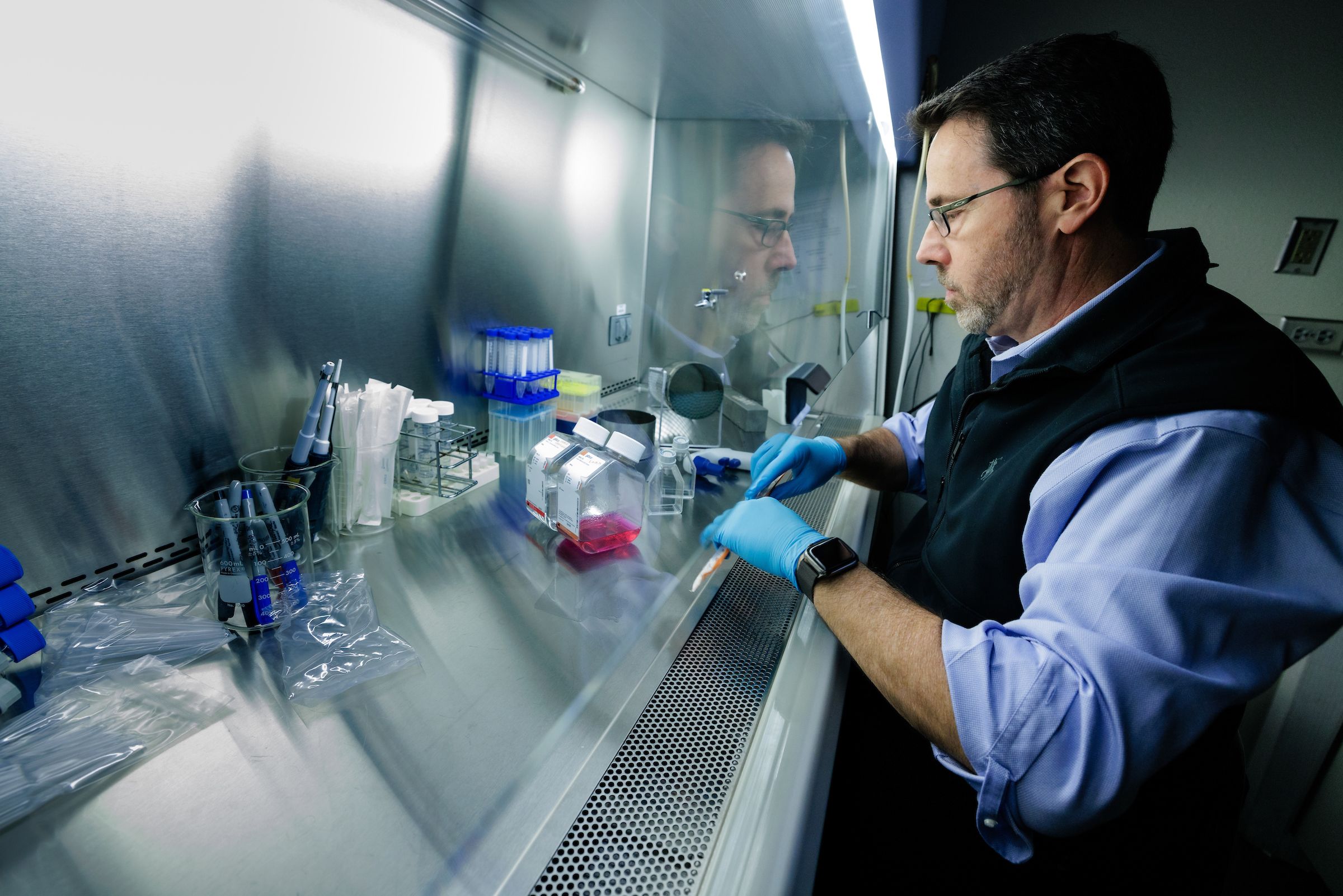
Tying it Together
Murphy eventually found himself in the field of comparative genomics at the National Cancer Institute, which helps in understanding genetic variations among mammal species and seeing where the connections are shared across history.
“We’re studying how genomes function—how genes are turned on and off, which parts of the genome drive those changes, and how that differs across species,” Murphy said. “Understanding these mechanisms can be transformative for biomedical research, helping us identify the genetic basis of diseases or traits in animals, and often, those findings can be translated to human health.
“By comparing genomes, we can pinpoint what’s unique to each species and what’s common across mammals—insights that are crucial for both evolutionary biology and biomedical advances.”
Murphy is regarded as an expert in cat evolution and genomics, with his work providing the foundation for medical treatment development and conservation efforts that promote feline health and well-being. Some of his recent research has helped scientists better understand what makes different cat species unique, including how they have adapted to their environments.
Murphy’s background provided clear connections to join the Texas A&M faculty. Not only is his mentor, Glen Collier, a former Aggie and Glenn’s wife from neighboring Bryan, Texas, but the campus’ nationally renowned animal genomics program provided the support needed for success, and it still does today.
“Texas A&M offers incredible resources, brilliant students and a strong infrastructure,” Murphy said. “I’ve always felt empowered and supported by my department heads, administrators and the broader academic community. It’s a place where, if you have a question, there’s undoubtedly someone here who can help you or your student take that next step. There are few excuses to not be able to do what you want to do here.
“That’s why I’ve stayed for 20 years—it’s a vibrant, collaborative environment where I feel truly appreciated.”
Connected to Excellence
Murphy’s research is being equally recognized for the impact it is making.
In 2024, Murphy was elected to the National Academy of Sciences. He is also an elected fellow of the American Association for the Advancement of Science. His work has been featured on the covers of publications like Science, Nature, Genome Research, the Journal of Heredity, and Genomics.
Being named SEC Professor of the Year joins his most recent accolades.
“It was a complete surprise—and incredibly humbling,” Murphy said. “It feels career-affirming in many ways, to know that what I’ve dedicated my life to has been recognized at this level. To be named the best in the SEC, especially in a field that some might see as niche, is truly special. I never imagined that would happen.
“It’s an honor to represent Texas A&M and to have my hard work and passion acknowledged in this way.”
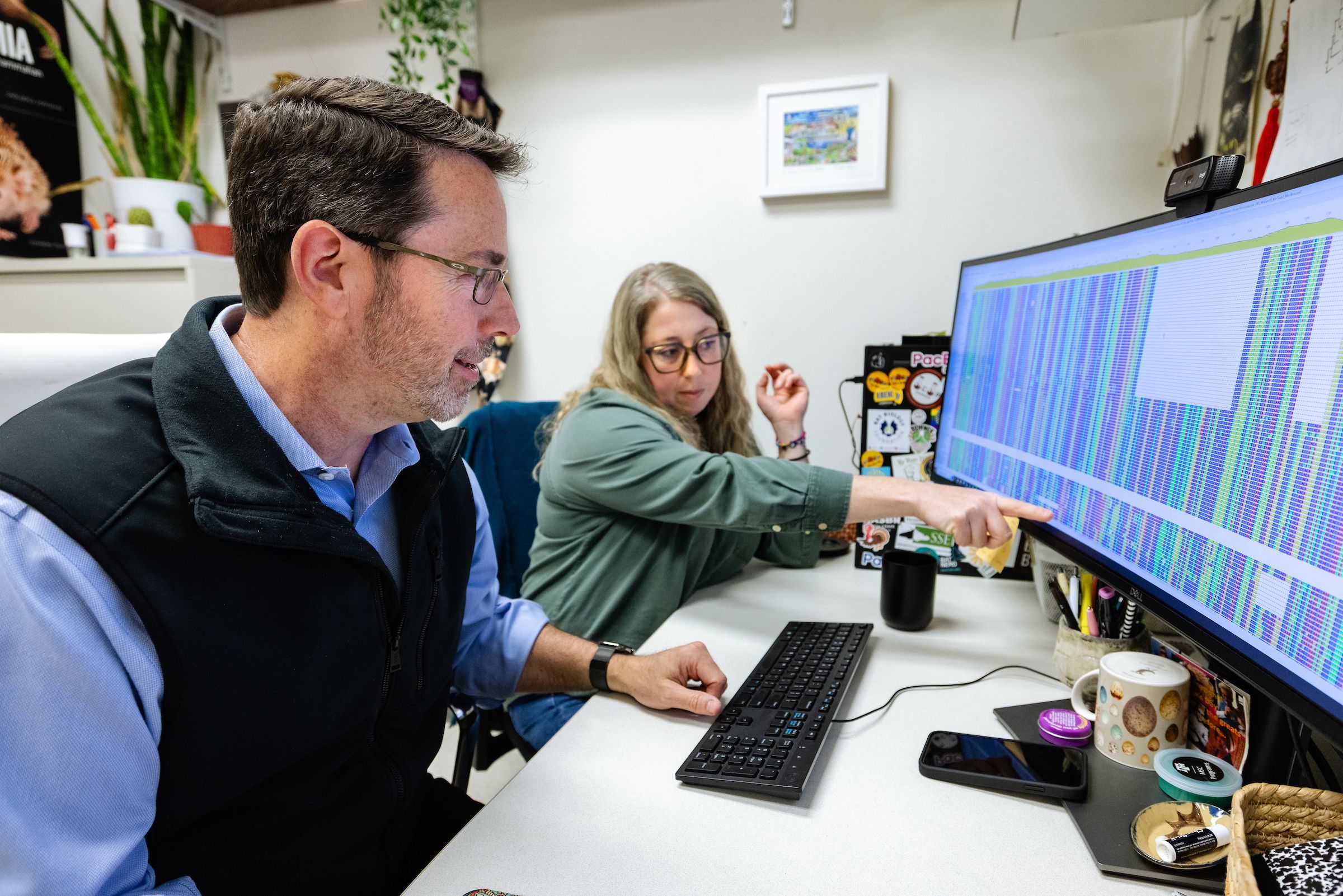
This content was paid for and created by Southeastern Conference. The editorial staff of The Chronicle had no role in its preparation. Find out more about paid content.





